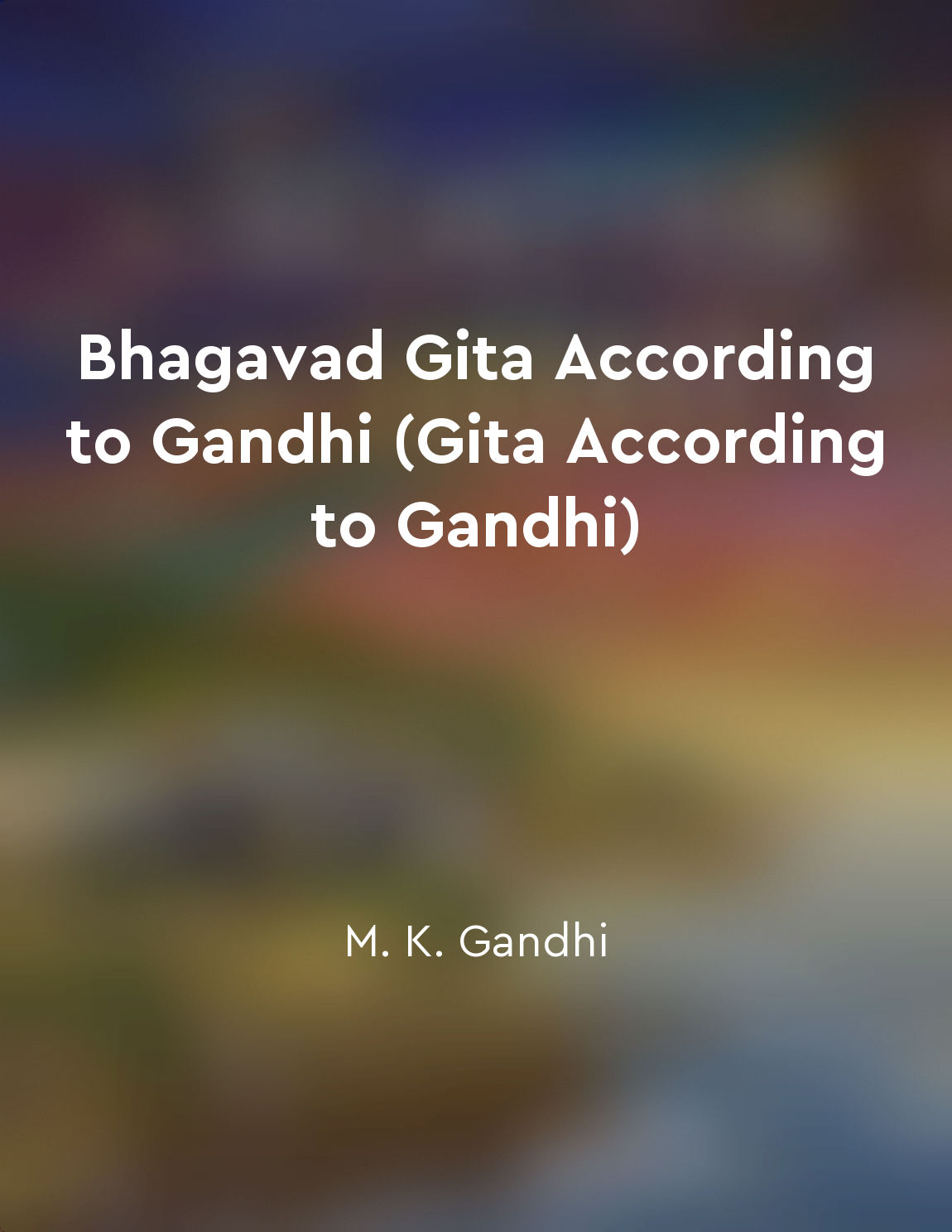The importance of seva, or selfless service, is highlighted in Hinduism from "summary" of The True History and the Religion of India by Prakashanand Saraswati
The concept of seva, or selfless service, is deeply ingrained in Hinduism. It is considered a fundamental aspect of the religion, emphasizing the importance of serving others without expecting anything in return. This practice is rooted in the belief that by serving others, individuals can transcend their own ego and desires, leading to spiritual growth and self-realization. In Hindu scriptures, seva is often described as a way to express devotion to the divine. By serving others, individuals are seen as serving God himself. This idea is beautifully captured in the Bhagavad Gita, where Lord Krishna instructs Arjuna to perform his duties selflessly, without attachment to the fruits of his actions. This teaching highlights the importance of dedicating one's actions to a higher purpose, rather than seeking personal gain. The act of seva is not limited to serving only those in need. It encompasses a wide range of activities, from helping the poor and needy to caring for the sick and elderly. In fact, seva can be performed in any capacity, whether it be through acts of kindness, charity, or volunteer work. The key is to approach these actions with a selfless attitude, free from selfish motives. One of the most famous examples of seva in Hindu mythology is that of Lord Hanuman, who selflessly served Lord Rama during his exile in the forest. Despite possessing immense strength and power, Hanuman dedicated himself to the service of his beloved master, demonstrating unwavering loyalty and devotion. His story serves as a powerful reminder of the importance of selfless service in the Hindu tradition.- The concept of seva plays a crucial role in shaping the moral and ethical framework of Hinduism. It encourages individuals to look beyond their own interests and consider the well-being of others. Through acts of selfless service, practitioners can cultivate humility, compassion, and a sense of interconnectedness with all living beings. Ultimately, seva is seen as a path to spiritual enlightenment and a means of expressing one's love and devotion to the divine.
Similar Posts

Be aware of your thoughts and actions
It is imperative for one to be vigilant of their thoughts and actions at all times. Our thoughts are like seeds that eventually...

Overcoming fear and doubt through faith
Fear and doubt are common emotions that we all experience at some point in our lives. They can prevent us from moving forward, ...

Practice nonviolence in thought and deed
The concept of practicing nonviolence in thought and deed is a central teaching in the Bhagavad Gita. This principle, as interp...
Yudhishthira's coronation
Yudhishthira's coronation was a grand event in the epic Mahabharat. It was the culmination of his journey to reclaim his rightf...
Kurukshetra war declared
The Kurukshetra war was a pivotal event in the epic Mahabharat, which changed the course of history for the Kuru dynasty. It al...

Arjuna's crisis on the battlefield
The warrior Arjuna found himself in a difficult situation on the battlefield of Kurukshetra. As the battle was about to begin, ...

Path to selfrealization
The path to self-realization is the process by which one strives to understand their true identity and purpose in life. This jo...
The soul is eternal and unaffected by the physical body
The soul, which is our true essence, is eternal and indestructible. It is not affected by the physical body, which is temporary...

